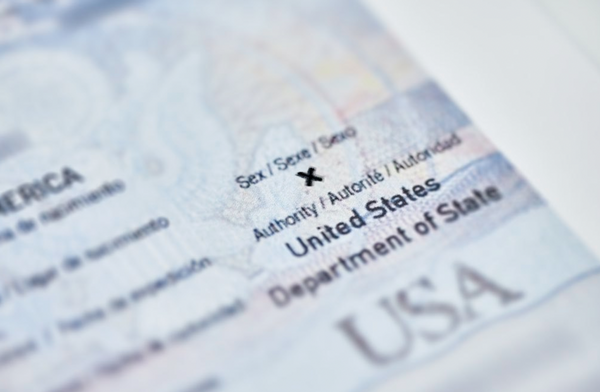
How’s the great Anglosphere crossover going? Hmmmmmmmm, good and bad. What’s the great Anglosphere crossover? It’s the process by which certain policies are migrating from mainstream left parties, to mainstream right ones, in pursuit of parts of the working- and middle-class vote. It’s the stage beyond the “culture wars”, the process by which the post-WWII social coalitions finally and fully break up.
The process really began with Donald Trump in 2016. The Republicans — who have just issued a 2024 manifesto which is very “crossover” — had been waging war on “the elites” for years. Then they chose Mitt Romney as their 2012 candidate. Romney, a former director of the corporate raider/slice-and-dicer Bain Capital, could play the cultural populist, but not the economic one.
Romney’s solution to the huge debt being carried by US auto manufacturers was pretty much the same as the Obama administration’s: take chapter 11 (i.e. operating) bankruptcy, write-off debt — including parts of pension funds — and sail on. His pitch was destroyed by a nameless New York Times subeditor who worked on Romney’s op-ed outlining this plan, and gave it the headline: “Let Detroit Go Bankrupt“.
Donald Trump — the big inflatable baby floating over traditional politics — wasn’t going to make that mistake. He promised rustbelt voters a fantasy: that tariffs would preserve “good jobs” — high-paid unskilled work in labour-intensive factories — and essentially restore the postwar world, where the working class was king. Like the joke about country and western songs, it was sorta like running Billy Joel’s “Allentown” backwards: we get the factory back, we get the town back, we get the…
That was enough to swing the votes in the rustbelt and get him elected. But the application of it was too haphazard to keep them. Residual free-marketeers in the Republican Party stymied what Trump advisers like Steve Bannon really wanted: a nationalist corporatist economy in which vast amounts of basic production was repatriated to the US, so that jobs made up for the rising costs of everyday goods.
Such a step is the only way that right-wing parties are going to be able to complete the crossover, the maneouvre whereby a core of native-born (not necessarily white) working-class votes go decisively to the right, which is where many want to be culturally. This would be the final sundering of the working class-progressives alliance, inaugurated when the progressives/intellectually trained/knowledge class emerged in the 1960s.
The UK Conservatives, under Boris Johnson, had a crack at it, with Johnson and his team rejecting the idea, sacred to Thatcherism, that the public/private divide in investment was the crucial one. For Johnson, and the Revolutionary Communist Party* veterans whispering in his ear (I am still far from convinced that BoJo was not an RCP mole, recruited during his stint as a Brussels correspondent by [named redacted]), growth and revival was the thing, didn’t matter how it was done.
This was the “northern powerhouse”, a proposal to essentially retain, rebuild, and high-technologise the north, drawing on its industrial heritage, etc etc. That was just spin, but the money was real, for a while. Then COVID hit and BoJo lost his nerve. The theory of endogenous growth that underlies all this says that the improvement in productivity will allow you to payback the present from the future.
But it can get wobbly along the way. The notion of the northern powerhouse had been as much a part of Johnson’s success in getting an 80 seat majority as “get Brexit done”. The gutting of it prepared for his downfall — and for the rise of Liz Truss, who pioneered the weirdest hybrid of all, debt-fuelled Thatcherism, borrowing to pay for tax cuts which would liberate British business and ingenuity, without cutting services. She was gone in 50 days.
Now the Coalition here is having a crack. If you’ve been asleep for a few months, running Tasmania or in a Sheffield Shield team or something, you’d wake to find that it’s the right promising a state-owned nuclear industry along with price and equity controls on supermarkets.
I mean, what the hell has gone on? Are they French? Are we in France? Will they soon be guzzling red wine and taking mistresses? Oh that’s Barnaby already, as you were. The political heads in the Coalition have presumably realised that culture war isn’t enough to make the crossover. There’s got to be some real economic grunt to it too.
The nuclear stuff might work — only might — in this space, because it shows a determination to make change through productive transformation. It’s a fairy tale — nuclear would be a money pit going to the centre of the earth — but it mongers what people want something of, which is the hope that decline — regional and rural — will be reversed. Nuclear is promethean, extractive, dominating and masculine, while renewables are symbiotic, integrative, cooperative and feminine.
That was one instalment. The second was the supermarkets thing, which pushed Labor (with the SDA toad squatting at its centre) into being the defender of the right of the Coles and Woolies boards to jack the prices up to wherever they like, and offer again the price comparison website (it’s a homepage with the words “GO TO ALDI” on it) as a lame alternative.
But the Coalition will never be able to complete this crossover mission if it cannot challenge the politics that lie at its heart, which is anti-union, anti-arbitration and anti-collective bargaining. Labor is the centre of the Australian polity, and always has been, even in exile from power. The non-Labor parties rearrange themselves around it, in whatever combination works.
To complete the crossover, the Coalition would have to repudiate the most recent iteration of the anti-Labo(u)r drive, which is John Howard and Howardism. They would have to renounce the WorkChoices strategy — still seared into the collective memory across the nation — and talk the language of negotiation, right to organise, etc etc. Given how right-shifted the Gillard-designed Fair Work Commission is, on paper, that shouldn’t be hard.
Off paper, it’s impossible. Recent votes — such as opposing laws to limit employers contacting workers out of hours — shows that the Coalition still doesn’t get it, and is, in any case, too beholden to the sections of capital that would want a rollback of new industrial relations laws as the first order of business of the next Coalition government.
Furthermore it has been lucky in that its largest right-wing competitor — One Nation — has maintained its petit bourgeois, small business, low tax etc policies, even as that base has shrunk in a monopoly/platform capitalist world. Its mistake is the same, if it is even that, as the Coalition’s: the belief that deep down, Australian working people are small government, sceptical, self-reliant individualists.
This is the barrier that keeps the right from breaking through: an unwillingness to admit that Australians are not Americans (neither are Americans actually) and notions of collective solidarity and limits to property rights persist as some implicit moral-political code, long after mass union membership has passed. Long may the right’s confusion reign. I suspect that it will take at least another election loss for a new right leader to firmly grasp the nettle, repudiate John Howard while he is still alive, and pluck the rose of full populism.
But in the US, the Republicans are having a crack at it. They’ve smartly repudiated the Heritage Foundation’s “Project 2025” agenda that was attached to Trump for a while, a nightmare document of stripping government down to small parts, combined with barely disguised Christian nationalism. The 2024 Republican Platform is hardcore, but it is also adapted to the very non-doctrinaire demands of the public that might form a majority.
Thus the new program affirms support for retaining the state run social security system, and Medicare, and doesn’t call for abolishing the Affordable Care Act/Obamacare. It affirms the idea of a revived national manufacturing sector of some size. It is more “moderate” on abortion, rejecting a national ban. It affirms a vast crackdown on immigration and mainstream cultural measures on things like women’s sports. As Jacobin founder Bhaskar Sunkara (with Dustin Guastella) has noted, the platform is frightening because it is plausible, bridging economic and cultural concerns.
The one thing it still can’t bring itself to mention is unions — even though these have been the reason for the high wages component of the ‘good jobs’ that so many Americans seek. Some Republicans have gone there. Florida Senator Marco Rubio, elected on a small government Tea Party ticket, has backed several strikes. There is a pro-union heritage in the Republican Party to draw on, but it’s deep-buried, terminated in 1912 when president Taft (Teddy Roosevelt’s vice president) took the party wholly to the right, Roosevelt ran against him, and the election’s victor, Woodrow Wilson, took the Democratic Party to the left.
But there is fertile ground for all these parties to make the crossover. What it takes is not a question of culture, but of economy. Such parties have to abandon any notion that value and growth comes uniquely from capital deploying labour, at best steered by the state, and become fully pluralist, seeing prosperity as a product of capital, labour and state. In a society moving slowly into a high-tech proto-post-capitalist one (yes, yes, I know), that is nothing less than the truth. But it is not easily done.
Labor, to head it off, must become the party of this slow transition, this shift of production, class and social categories. It should be moving steadily — slowly, but steadily — to the cultural and social right, to sit where the values of the mainstream do, and leave core progressives to the Greens.
But it needs to move politically and economically left at the same time. It should have come out with strong measures against the supermarket duopoly long before the Coalition bubbled them up from the National Party. It was embarrassing and shameful to see one Labor minister after another rush to the defence of cartelised monopoly retail capital, a betrayal of workers-as-consumers.
Labor is now the party for the management of capital, as I’ve noted from the start of the Albanese government. It aspires to be left Howardist, as I noted in 2022, but it has the settings wrong; too far right economically industrially, too far left culturally. In 2025, or late 2024, it runs the risk of getting caught out, as Keating was in 1996, imposing austerity budgets, letting progressive cultural engineers off the leash to bully people into lifestyle change, while prattling on about national greatness.
Labor, in Australia, can win the great crossover, but not by faking it, or hanging on to sentimental attachments to postwar social coalitions now long vanished. In another few years, professional class progressives, separated by two generations from a coalition with the working class — and increasingly prosperous and/or cash-strapped — will go economically to the right on taxes and spending, and that will be something the Greens will have to deal with. Change in politics can be like that of trains, or that of a nappy — and at the moment Labor is holding the baby.
*This is a reference to the UK Revolutionary Communist Party 1981-1996, headed by Frank Furedi, not the current UK Revolutionary Communist Party, a radical third-worldist, anti-imperialist group (which does a lot of great organising in UK public housing estates being destroyed by Labour councils), and still less the US Revolutionary Communist Party, a demented cult around its pudgy, Parisian-domiciled guru Bob Avakian. The “Furedite” RCP, sort of early tech-accelerationists, and now pro-borders culture warriors, furnished Johnson with his principal adviser Munira Mirza. Numerous other cadres popped up in the mix over the years. Claire Fox, their 1980s Rosa Luxemburg, is now Baroness Fox in the Lords. Gotta love the UK…







